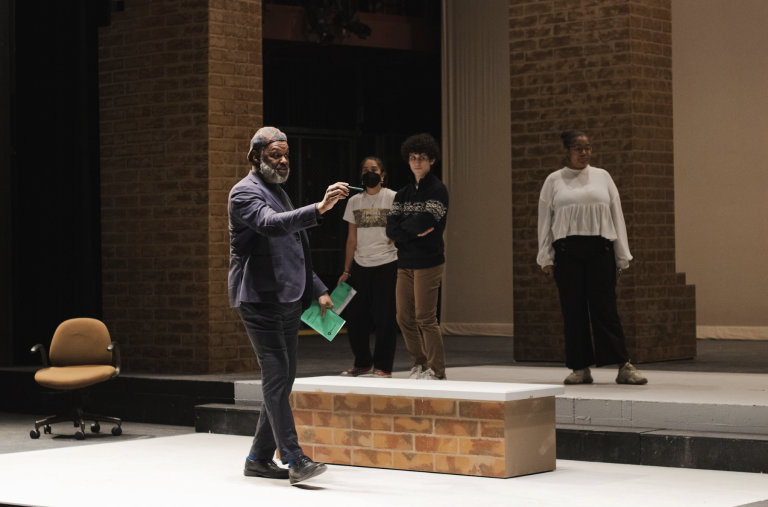ELISE KEI-RAHN ’16
STAFF WRITER
Beyoncé recently released a striking, groundbreaking visual album entitled “Lemonade.” The visual concept album, which debuted on HBO last week and subsequently arrived at No. 1. on Tidal, has been lauded as a work of genius. Set against a New Orleans backdrop, the 65-minute film pairs the story of husband Jay-Z’s alleged affair with a statement of black female empowerment. These powerful themes have caused a stir among some media sources, who criticized Beyoncé for presenting such a strong image of “blackness.” While Beyoncé’s video is about Black America, it also ruminates on how her personal identity fits into a grander view of Black America, evidenced by lyrics like those from “Formation”: “My daddy Alabama, my mom Louisiana/you mix that Negro with that Creole make a Texas Bama”.
Throughout “Lemonade,” there are references to the Black Lives Matter movement, the Deep South, political leaders like Malcolm X, and key figures in women’s literature. The film also seems to make loose reference to the famous Elizabeth Kübler-Ross model of grief. Beyoncé divides her story into ten epochs of emotion: “Intuition,” “Denial,” “Anger,” “Apathy,” “Emptiness,” “Accountability,” “Reformation,” “Forgiveness,” “Resurrection,” “Hope,” and “Redemption.”
Beyoncé focuses her artistic energy toward racial inequality in multiple shots of Lemonade, challenging constraints placed on black youth and women. Blue Ivy Carter, Beyonce’s daughter, runs around in a pure white dress during “Formation.” She’s consistently cheerful and smiling, shown always in an untainted ethereal light. Blue Ivy poses for the camera, looking directly at the lens while Beyoncé croons, “I’m a star.” It’s a powerful moment that pushes against the media’s early scrutiny of black youth.
In one scene, Beyoncé crouches on a submerged police car floating in the aftermath of Hurricane Katrina. This inherently powerful image puts a spin on the traditional femme fatale. Her lips, pursed and beautiful, then turn upward into a deep snarl. These two polar identities are at the heart of “Lemonade”; the mystical serenity of black beauty and the fire of Beyonce’s own rebellion. “Lemonade” was directed by a woman, Melina Masoukas, who centered the video on the diluvial legacy of New Orleans, Louisiana. “Formation” alludes to Trayvon Martin and Mike Brown, and while they’re not central to the video, their presence is significant.
The scenes of “Lemonade” don’t seamlessly flow together because the video is intended to feel more like a stream of consciousness. There is, however, one key element that builds a coherent statement: the absence of white people. This absence holds the most credence in the scenes related to the flooding of New Orleans; images which symbolize a multifarious definition of rebirth for both herself and Black Americans. In addition to representing a personal cleansing of her own identity, she’s also making a statement on the rebirth of New Orleans in post-Katrina society. According to American geographer Kate Derickson, Southern cultural politics made it easier for poverty stricken black neighborhoods to be left out of the recovery process in coastal Mississippi. Derickson argues that “the storm did not have a disproportionate impact and that it left in its wake a blank slate to be remade rather than a highly uneven and deeply racialized landscape.” This landscape is a crucial aspect of Beyoncé’s vision; It is both a political statement and a representation of her own identity, and the anger of inheriting systemic racism.
“Lemonade” reads almost like a diary. Though it can sometimes be difficult to navigate or fully understand, it is never bewildering. As Trinity’s Professor Daniel Mrozowski has said, “all modernist journey stories require a map.”
Beyoncé’s “Lemonade” is a landmark in both American popular culture and racially inspired art. It is both profound and entertaining, a versatile piece of art that will stand the test of time. The reason for this success is clear- rather than focusing on the limitations of being a black female, Beyoncé reveals the potential to shatter glass ceilings.
Tuesday, January 14 2025
The Student Newspaper at Trinity College in Hartford, Connecticut




+ There are no comments
Add yours